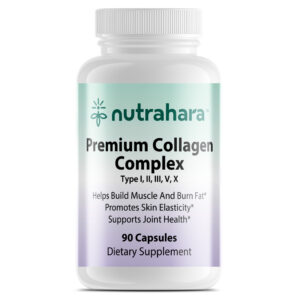
Nutrahara Blog
Nutrahara Blog
Top Postpartum Hair Loss Vitamins Every New Mom Should Know About
1. Understanding Postpartum Hair Loss
1.1 What Is Postpartum Hair Loss?
Postpartum hair loss, medically known as telogen effluvium, is a temporary condition that affects many women after childbirth. While it may feel alarming, it’s a natural response to the hormonal shifts that occur during the transition from pregnancy to the postpartum period. During pregnancy, high levels of estrogen prolong the growth (anagen) phase of the hair cycle, resulting in thicker, fuller hair for many women. However, after delivery, estrogen levels plummet rapidly. This sudden hormonal drop causes more hair follicles to enter the shedding (telogen) phase all at once, leading to noticeable hair loss 2 to 4 months after giving birth. This is where postpartum hair loss vitamins play a critical role.
1.2 Common Symptoms
The most common symptom of postpartum hair loss is increased shedding—often seen while brushing, washing hair, or finding hair on your pillow. Many women notice thinning around the hairline, temples, or part line. Unlike chronic hair loss conditions, postpartum shedding is diffuse and not usually patchy or permanent.
1.3 How Long Does It Last?
In most cases, postpartum hair loss resolves naturally within 6 to 12 months as hormone levels stabilize and the hair cycle returns to normal. However, nutritional deficiencies, stress, and sleep deprivation can prolong the shedding phase. For this reason, many health professionals recommend targeted postpartum hair loss vitamins as a nutritional safeguard to support healthy hair regrowth, nourish hair follicles, and correct underlying imbalances during recovery.
Understanding the root cause of postpartum shedding is the first step toward reclaiming your confidence and creating an effective postpartum hair loss treatment plan.
2. Why Vitamins Matter for Postpartum Hair Loss Treatment
2.1 Role of Nutrition in Hair Regrowth
The connection between nutrition and hair health is undeniable—especially after childbirth. During pregnancy, your body redirects key nutrients like iron, calcium, and folate toward fetal development. After delivery, many women are left depleted, making it difficult for the body to maintain optimal skin and hair function.
Hair is a non-essential tissue in the body, meaning it’s one of the first areas to suffer when nutrients are scarce. Deficiencies in iron, biotin, vitamin D, and zinc—common in postpartum women—can prolong hair shedding and delay the regrowth cycle. A lack of these nutrients disrupts the natural hair growth phases and weakens follicles, contributing to thinner, more fragile hair.
2.2 Benefits of Postpartum Hair Loss Vitamins
Incorporating postpartum hair loss vitamins as part of your daily routine can support the body’s recovery and act as a natural postpartum hair loss treatment. These vitamins help:
- Rebuild essential nutrient stores lost during pregnancy and delivery
- Strengthen hair shafts and support keratin production for healthier strands
- Promote scalp circulation, ensuring follicles receive adequate oxygen and nutrients
- Balance hormonal shifts, especially with adaptogens like ashwagandha
- Reduce oxidative stress, which can impair follicle health and speed up hair loss
By targeting the root causes of postpartum shedding, vitamins offer a holistic and non-invasive solution. When used consistently and alongside a nutrient-rich diet, postpartum hair loss vitamins can significantly improve the health, thickness, and shine of your hair during the crucial recovery period.
3. Top Postpartum Hair Loss Vitamins to Consider
When it comes to effective postpartum hair loss treatment, not all vitamins are created equal. The best postpartum hair loss vitamins address the specific nutrient gaps that new mothers commonly experience after childbirth. These targeted vitamins support hair follicle strength, reduce excessive shedding, and encourage faster regrowth.
3.1 Biotin (Vitamin B7)
Biotin is perhaps the most well-known hair health nutrient—and for good reason. It plays a key role in the synthesis of keratin, the protein that makes up hair, skin, and nails. During postpartum recovery, biotin levels may drop, contributing to brittle hair and excessive shedding. Supplementing with biotin-rich postpartum hair loss vitamins helps improve hair strength and growth.
3.2 Iron
Iron deficiency is one of the leading causes of postpartum hair loss, especially in women who experienced heavy bleeding during delivery or had low iron levels during pregnancy. Iron helps deliver oxygen to hair follicles, and without it, hair can become thin and fall out prematurely. Including an iron supplement or iron-rich foods in your postpartum diet is essential.
3.3 Vitamin D
Often called the “sunshine vitamin,” Vitamin D plays a surprising role in activating hair follicles. Low Vitamin D levels have been associated with alopecia and prolonged telogen (resting) phases of hair. A supplement with Vitamin D3 can be a powerful addition to your postpartum hair loss treatment routine.
3.4 Zinc and Other Nutrients
Zinc, collagen, omega-3 fatty acids, and Vitamin E also contribute significantly by repairing scalp tissues, balancing hormones, and enhancing follicle resilience. High-quality postpartum hair loss vitamins often contain these synergistic nutrients in one convenient formula, such as Nutrahara’s Premium Collagen Complex or FemmePower blend.
4. Choosing the Right Postpartum Hair Loss Vitamins
With so many supplements on the market, selecting the right postpartum hair loss vitamins can feel overwhelming. But understanding what your body needs after childbirth—and how different nutrients support hair regrowth—can help you make informed, effective choices.
4.1 Natural Foods vs. Supplements
While a well-balanced diet remains the foundation of any recovery plan, it’s not always practical for new moms to consistently meet all their nutrient requirements through food alone. Sleep deprivation, breastfeeding demands, and limited meal prep time can lead to gaps in essential vitamins. That’s where postpartum hair loss vitamins offer convenience and precision. Supplements allow you to get therapeutic doses of key nutrients like biotin, iron, vitamin D, and zinc in a single daily formula—especially when eating balanced meals isn’t always possible.
4.2 What to Look for in a Supplement
When choosing a quality supplement, consider the following:
- Transparent labeling and third-party testing for safety
- Clinically supported doses of biotin, iron, zinc, and other essential nutrients
- No artificial additives or hormone disruptors
- Added adaptogens, such as ashwagandha or shatavari, for hormonal balance
- Breastfeeding-safe formulations (if applicable)
Supplements like Nutrahara’s FemmePower and Premium Collagen Complex are excellent examples of holistic postpartum hair loss treatment blends. They combine hair-boosting nutrients with stress-relieving herbs, addressing both physical and emotional factors of postpartum recovery.
4.3 Personalization Is Key
Every woman’s postpartum experience is unique. Choose postpartum hair loss vitamins that align with your health goals, lifestyle, and nutritional needs—and don’t hesitate to consult your OB-GYN or naturopath before starting a new regimen.
5. 7 Expert-Backed Tips for Using Postpartum Hair Loss Vitamins
When it comes to reversing hair shedding after childbirth, simply taking a supplement isn’t always enough. To get the best results from your postpartum hair loss vitamins, it’s important to pair them with supportive lifestyle habits. Here are seven expert-approved tips to help optimize your recovery and make the most of your postpartum hair loss treatment:
5.1 Be Consistent and Patient
Hair regrowth is a slow process, and most women won’t see visible improvement for at least 6 to 12 weeks. Take your postpartum hair loss vitamins daily without missing doses. Set reminders if needed.
5.2 Pair Supplements With a Protein-Rich Diet
Hair is composed primarily of keratin, a structural protein. For vitamins to be effective, your diet should include protein sources like eggs, lentils, quinoa, and fish.
5.3 Avoid Harsh Styling
During postpartum recovery, your hair is more vulnerable. Skip tight ponytails, harsh brushing, and frequent heat styling, which can lead to breakage and worsen shedding.
5.4 Massage the Scalp
A few minutes of gentle scalp massage daily improves circulation and helps nutrients from your postpartum hair loss treatment reach the follicles more efficiently.
5.5 Stay Hydrated
Water supports cellular function, including hair follicle health. Aim for 8–10 cups daily to maintain moisture levels in the scalp and strands.
5.6 Manage Stress Levels
Postpartum stress and sleep deprivation can elevate cortisol levels, triggering or worsening hair loss. Consider calming activities like yoga, meditation, or Nutrahara’s AnxioGuard supplement.
5.7 Consult a Healthcare Provider
Before starting any new supplement—especially if you’re breastfeeding—speak with your doctor to ensure your chosen postpartum hair loss vitamins are safe and tailored to your individual needs.
6. Real-Life Testimonials: Women Who Tried Postpartum Hair Loss Vitamins
Hearing from real women who’ve experienced the emotional and physical effects of postpartum hair loss can be both validating and encouraging. Below are testimonials from five women across the U.S. who incorporated postpartum hair loss vitamins into their recovery journey—with transformative results.
6.1 Sarah, 34 – Seattle, WA
“About three months after giving birth to my son, I noticed my hair falling out in handfuls. It was terrifying. A friend recommended Nutrahara’s Premium Collagen Complex, and after about 8 weeks, I started seeing fewer hairs in my brush. Three months in, my hairline filled in, and I regained so much confidence.”
6.2 Priya, 29 – San Jose, CA
“I was iron deficient during pregnancy, and that continued postpartum. I started losing hair fast. My doctor confirmed I was low in zinc and biotin too. I started using Nutrahara’s FemmePower along with iron supplements, and the shedding stopped within a month. Now I even have baby hairs growing back!”
6.3 Emily, 37 – Dallas, TX
“I had thick, curly hair before my daughter was born, but it thinned drastically by month four. I learned about how important Vitamin D and collagen are for hair regrowth. Nutrahara’s Postpartum Hair Kit was a game-changer—it included everything from D3 to marine collagen. I’m finally getting my volume back.”
6.4 Nicole, 31 – Miami, FL
“I thought biotin alone would fix my hair, but I needed more. Once I added omega-3s and a complete multivitamin, my scalp felt healthier and the hair came back shinier. Nutrahara’s vitamins made it easy to stay consistent.”
6.5 Anika, 40 – Chicago, IL
“The biggest surprise for me was how stress played into my hair loss. I added Nutrahara’s AnxioGuard to my routine for cortisol support, and paired it with scalp massage and collagen. I saw results in just two months.”
Each of these women found success not just by taking postpartum hair loss vitamins, but by addressing multiple root causes—nutritional, hormonal, and emotional—proving that a comprehensive postpartum hair loss treatment can deliver visible and empowering results.
7. Summary
Postpartum hair loss is a common yet distressing experience for new mothers, typically beginning 2–4 months after childbirth due to a sharp drop in estrogen levels. While this hair shedding is usually temporary, it can be exacerbated by nutrient deficiencies, stress, and hormonal imbalances. Fortunately, targeted postpartum hair loss vitamins can help restore essential nutrients, strengthen follicles, and support healthy regrowth.
Key vitamins such as biotin, iron, vitamin D, zinc, collagen, omega-3s, and vitamin E play a crucial role in reversing hair loss and promoting scalp health. Supplements that combine these nutrients—like Nutrahara’s FemmePower and Premium Collagen Complex—offer a holistic solution, especially when paired with a protein-rich diet, hydration, and stress management.
Seven expert-backed tips include daily consistency, avoiding heat styling, scalp massage, and consulting with a healthcare provider—especially for breastfeeding moms. Real-life testimonials from women across the U.S. show how these supplements, combined with lifestyle changes, led to visible improvements within 2–3 months.
Whether you’re in early postpartum or still experiencing shedding months after delivery, a consistent routine of high-quality postpartum hair loss vitamins can serve as a safe, natural, and empowering postpartum hair loss treatment to restore your hair and confidence.
Written by the Nutrahara Team
This article was prepared by the expert team at Nutrahara, which includes experienced nutrition scientists and naturopaths dedicated to advancing women’s health through natural wellness solutions. We combine scientific research with holistic practices to help you live your healthiest life. Connect with us on LinkedIn to stay updated on the latest in women’s health and wellness.











